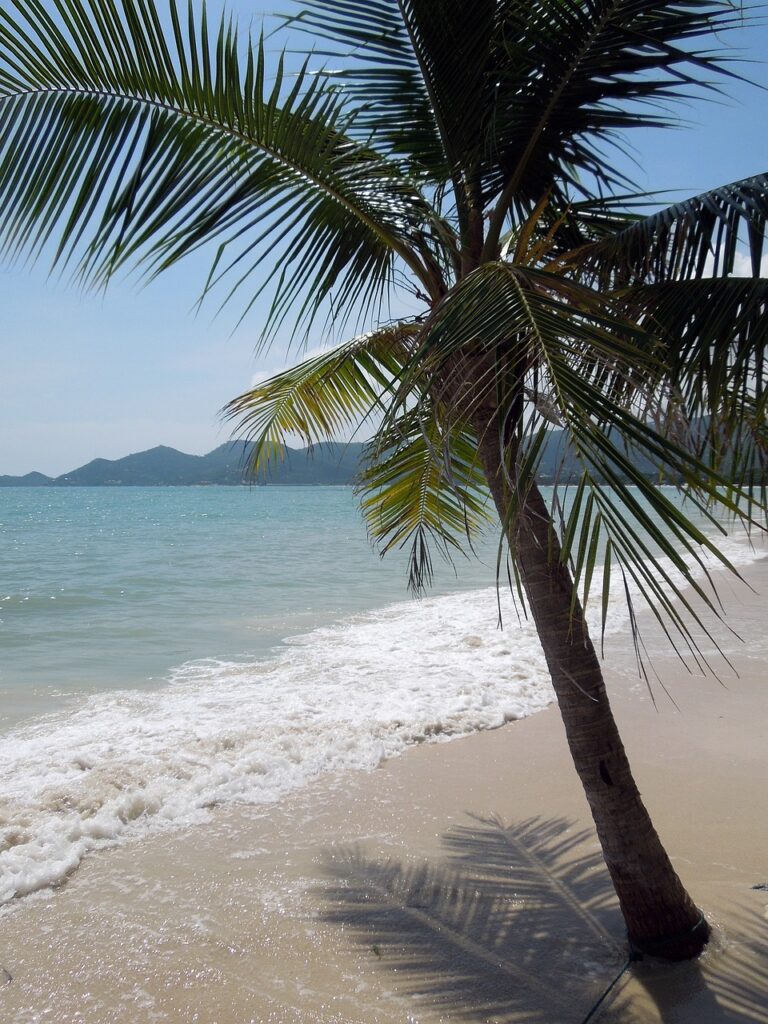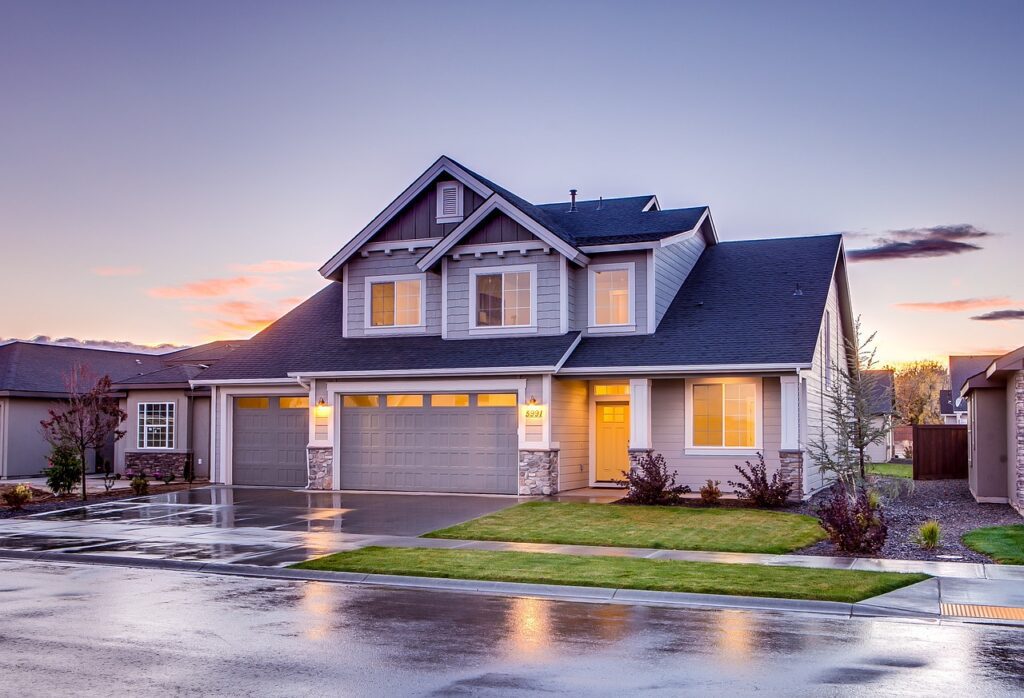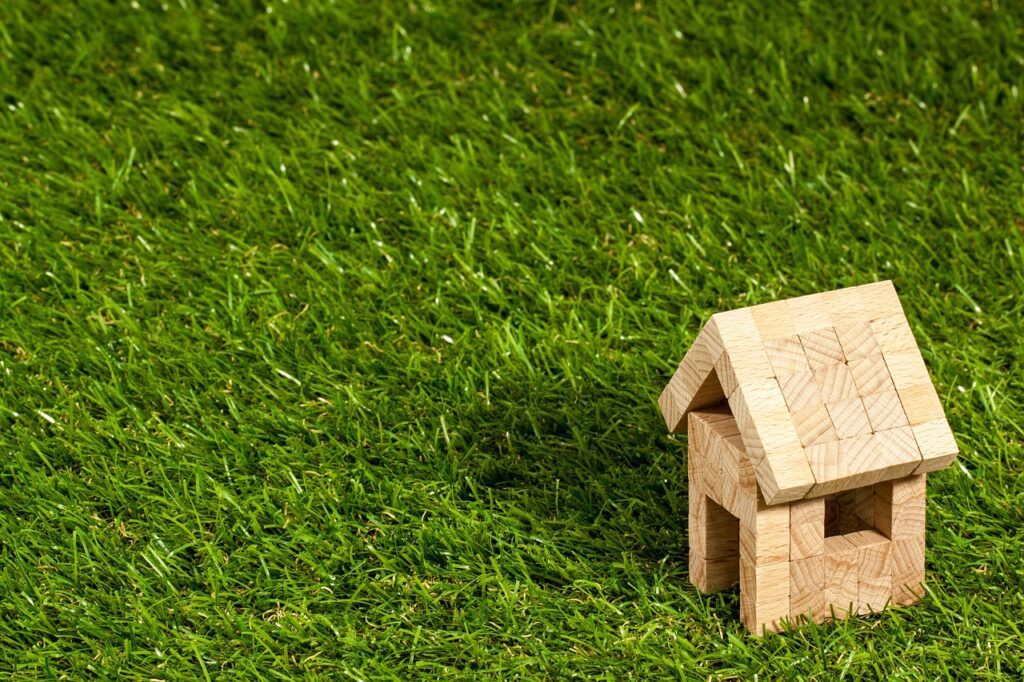Koh Samui, a gem in Thailand’s Gulf, continues to shine as a premier destination for both tourists and real estate investors. With its pristine beaches, lush tropical landscapes, and a thriving tourism sector, it’s no wonder that investors from across the globe are drawn to this island paradise. As we approach 2025, the real estate market in Koh Samui is expected to see exciting developments and new opportunities. Whether you’re an established investor or someone exploring potential in the region, understanding the latest trends can be key to making informed, strategic decisions that capitalize on the island’s evolving property landscape.

In this article, we’ll take an in-depth look at the real estate market trends in Koh Samui for 2025 and provide forecasts for the coming years. From the increasing demand for eco-friendly properties to shifts in the luxury villa market, we’ll explore how these trends are shaping the future of Koh Samui’s real estate and what savvy investors can expect moving forward.
Growing Demand for Luxury Villas
As we approach 2025, the demand for luxury villas in Koh Samui is expected to continue growing. These properties, known for their exclusivity and breathtaking locations, remain a highly attractive investment for those seeking both lifestyle and financial gains. Luxury villas, especially those situated in sought-after areas like Chaweng, Bophut, and Lamai, are consistently in demand, making them a prime target for savvy investors looking for long-term value.
A Stable Investment Choice
Luxury villas have become a stable investment in Koh Samui’s dynamic property market. Despite global fluctuations, the island has proven to be resilient, especially in the high-end property sector. Investors are drawn to the island’s ability to offer high-net-worth individuals a blend of serene island living and profitable investment opportunities.
Whether purchased as vacation homes or for holiday rentals, these properties deliver consistent returns. The appeal of Koh Samui lies in its ability to combine tranquility, safety, and economic potential, making luxury villas an ideal choice for those looking for a secure, long-term investment that offers both personal enjoyment and financial gain.
Rising Rental Income Potential
One of the key drivers behind the growing appeal of luxury villas in Koh Samui is their rental income potential. As tourism continues to recover post-pandemic, the demand for short-term vacation rentals has surged, especially in the luxury segment. Koh Samui’s reputation as a top tourist destination ensures that luxury villas are always in high demand for holiday stays, particularly during the peak tourist seasons.
For investors, this translates into significant earning opportunities. The average nightly rates for luxury properties remain high, allowing villa owners to maximize returns. With international travel expected to return to full strength by 2025, rental yields for luxury villas in Koh Samui are set to increase, making it an ideal time for investors to capitalize on the island’s booming rental market. The combination of increasing tourist arrivals and premium rental rates ensures that luxury villas will continue to offer strong return on investment (ROI) in the years to come.
Eco-Friendly and Sustainable Properties on the Rise
As environmental awareness grows globally, Koh Samui’s real estate market is seeing a surge in demand for eco-friendly and sustainable properties. This shift is being driven by both local government initiatives and an increasing number of environmentally conscious buyers and investors. By 2025, sustainable living will be a defining trend in Koh Samui’s property market, as developers respond to the growing call for homes that reduce environmental impact and promote long-term sustainability.
Meeting the Demand for Green Living
In recent years, green living has become a central focus for homebuyers and real estate developers alike. Properties that integrate sustainable features, such as solar panels, rainwater harvesting systems, and energy-efficient designs, are rapidly gaining popularity. By 2025, this trend is expected to reach new heights as consumers seek out homes that not only reduce their carbon footprint but also offer long-term cost savings on utilities.
In Koh Samui, the appeal of eco-friendly properties goes beyond environmental concerns. These homes align with a broader global trend towards ethical living, where buyers are increasingly looking to invest in properties that prioritize sustainable practices. Developers who embrace natural building materials and eco-conscious designs are finding themselves at the forefront of the market, offering homes that appeal to buyers who care about their environmental impact.
For investors, sustainable properties present an attractive opportunity. Not only do they cater to a niche but growing market, but they also tend to hold their value over time, given the rising demand for green living spaces. The long-term savings in energy consumption and maintenance costs further strengthen the case for investing in eco-friendly developments.

Government Initiatives and Regulations
In addition to the consumer-driven push for sustainability, government initiatives in Koh Samui are playing a pivotal role in shaping the future of real estate on the island. By 2025, local regulations are expected to tighten in favor of sustainable development. Energy efficiency standards, environmental impact assessments, and stricter building codes will likely be enforced, particularly for new construction projects.
These government regulations are encouraging developers to adopt green building practices, which include using sustainable materials, minimizing waste, and optimizing energy consumption. Incentives for eco-friendly developments, such as tax breaks or faster approval processes, may also be introduced to further promote sustainable construction.
For buyers and investors, these initiatives provide additional assurance that Koh Samui is committed to sustainable growth, making it a prime location for those interested in eco-conscious investments. By supporting properties that adhere to these stricter environmental standards, investors can align their portfolios with global trends towards sustainability, while contributing to the preservation of Koh Samui’s natural beauty.
Increased Interest in Secluded and Private Retreats
As lifestyles evolve and preferences shift toward tranquility and privacy, Koh Samui’s real estate market is seeing an increased demand for secluded and private retreats. This growing trend reflects a desire for homes that offer not only luxury but also peace and escape from the busier areas of the island. By 2025, this demand is expected to strengthen, as buyers and investors seek out hidden gems in Koh Samui’s more remote locations.
Shift Toward Privacy and Seclusion
In recent years, there has been a noticeable shift toward privacy and seclusion in the real estate market, and this is particularly evident in Koh Samui. Buyers are moving away from the crowded tourist hotspots and are opting for properties in quieter areas like Mae Nam or Bang Por. These locations offer a more relaxed, serene environment, ideal for those seeking to escape the bustling life in more developed regions such as Chaweng or Lamai.
This trend has been further accelerated by the post-pandemic world, where privacy and space are more valued than ever. Many buyers are now looking for luxury villas and homes that provide exclusive retreats, where they can enjoy both the beauty of the island and the comfort of seclusion. Investors, recognizing this growing demand, are purchasing land in less developed areas and constructing private retreats that cater to individuals and families who prioritize solitude and high-end living.
Additionally, properties that offer natural surroundings and stunning views are becoming increasingly desirable. Buyers are drawn to the opportunity to live in harmony with nature, making secluded properties in lush, green settings a top choice for those who value privacy and relaxation.
Long-Term Stays and Remote Work
Another key factor driving the demand for secluded properties is the rise in remote work and long-term stays. Koh Samui is becoming a popular destination for digital nomads, expatriates, and long-term residents who are seeking a peaceful, beautiful location to live and work. The island’s unique blend of tropical charm and modern amenities makes it an ideal spot for those looking to settle in for extended periods.
With more companies allowing employees to work remotely, secluded villas and private homes are increasingly sought after. Remote workers prefer properties that offer not only privacy but also space and tranquility, where they can focus on work while enjoying the island’s natural beauty. This trend is expected to significantly boost the demand for long-term rentals and private retreats in 2025 and beyond, as Koh Samui becomes a haven for individuals seeking both luxury living and work-life balance.
Investors are seizing the opportunity by developing properties tailored to this market. Secluded retreats with ample workspaces, strong internet connections, and serene environments are in high demand, offering excellent potential for rental income. As the trend toward remote work and long-term stays continues to grow, the island’s real estate market is likely to see more developments focusing on privacy, comfort, and a connection to nature.

Land Price Trends and Opportunities
As Koh Samui continues to attract both domestic and international real estate investors, land price trends reflect the island’s growing appeal. By 2025, the demand for land in prime areas will likely drive prices even higher, while emerging locations offer exciting opportunities for investors seeking untapped potential.
Rising Land Costs in Prime Locations
Prime areas such as Chaweng, Bophut, and Lamai have long been the focus of real estate development in Koh Samui, and this trend shows no sign of slowing. As these locations are highly sought after by both tourists and expatriates, the demand for land is pushing prices upward. By 2025, land in these regions is expected to become even more valuable, as investors continue to seek prime spots for building luxury villas, boutique hotels, and high-end resorts.
In Chaweng, one of the island’s most vibrant areas, land prices are particularly steep due to its proximity to popular beaches, nightlife, and shopping districts. Bophut, with its famous Fisherman’s Village, remains a favorite for those looking to invest in beachfront properties or commercial ventures catering to tourists. Similarly, Lamai offers a blend of beautiful coastline and developed amenities, making it a prime location for real estate investments.
For investors with the resources to purchase land in these sought-after areas, acquiring property sooner rather than later could be a sound strategy. With the steady rise in land costs, holding property in these prime locations offers potential for strong capital appreciation and rental income over the coming years.
Investment Potential in Less Developed Areas
While prime locations in Koh Samui command premium prices, less developed regions are becoming increasingly attractive to savvy investors. Areas like Lipa Noi, known for its tranquil beaches, and Taling Ngam, with its stunning natural landscapes, are gaining attention for their investment potential. These regions offer more affordable land compared to the island’s established tourist hotspots, making them ideal for investors seeking long-term growth opportunities.
Impact of Government Regulations and Foreign Investment
Government regulations and foreign investment trends are crucial in shaping the future of the real estate market in Koh Samui. With a steady influx of international buyers, understanding the legal landscape and potential government initiatives is essential for both local and foreign investors.
Foreign Ownership and Legal Requirements
Foreign investment has long been a driving force behind Koh Samui’s real estate market, and this trend is expected to continue into 2025. However, foreign ownership laws in Thailand place certain restrictions on non-Thai nationals. Foreign buyers are permitted to own buildings, such as luxury villas or condominiums, but they are not allowed to own land outright. Instead, many foreign investors secure their properties through long-term leasehold agreements, which typically last up to 30 years with options for renewal.
Another common option for foreigners is to form a partnership with a Thai national or establish a Thai Limited Company where the foreign shareholder can own up to 49%, while the majority is held by Thai nationals. These legal avenues provide solutions for foreign investors looking to establish a foothold in the lucrative Koh Samui property market.
Navigating these legal requirements is essential to ensure that your investment is compliant with Thai laws. Working with experienced legal professionals who specialize in Thai property law can help foreign investors secure their investments smoothly and avoid any potential complications. Ensuring compliance from the outset guarantees the long-term stability of your real estate investments on the island.
Government Initiatives to Boost Investment
As Thailand looks to remain competitive in the global real estate market, government initiatives aimed at boosting foreign investment are expected to take shape by 2025. These government policies will likely focus on streamlining processes for foreign buyers and offering incentives to attract more international capital to Koh Samui.
In line with global trends toward eco-friendly and sustainable development, the Thai government is promoting green construction and environmentally conscious investments. By offering tax incentives and financial benefits for developments that adhere to sustainable building practices, Thailand aims to attract investors who prioritize sustainable real estate projects.
Moreover, there may be changes to the leasehold laws, providing greater clarity and longer-term security for foreign investors. These adjustments could make leasehold agreements more appealing by extending the maximum lease term or simplifying the process for renewing contracts. If such reforms are enacted, they will likely stimulate even greater demand from foreign buyers interested in the Koh Samui property market.

Additionally, as tourism continues to recover, the government may introduce initiatives to streamline the property registration process for foreign investors, reducing bureaucratic hurdles and making Koh Samui a more attractive destination for investment. These regulatory changes, along with the island’s natural beauty and vibrant property market, position Koh Samui as a key target for international real estate investors looking to benefit from Thailand’s growing economy.
By staying informed about government policies and foreign investment regulations, real estate investors can capitalize on the expanding opportunities in Koh Samui, ensuring their investments are both profitable and secure in the coming years.
Heveatecture’s Commitment to Sustainable Development in Koh Samui
In the ever-evolving real estate market of Koh Samui, sustainability has become more than just a trend—it’s a necessary shift toward preserving the island’s natural beauty while meeting the needs of modern property buyers. Heveatecture, a forward-thinking construction company, has embraced this responsibility by focusing on eco-friendly practices that align with Koh Samui’s environmental regulations and the growing demand for sustainable properties.
Focus on Eco-Friendly Construction
Heveatecture’s dedication to sustainability shines through in their use of green building techniques. From energy-efficient designs and solar panel installations to rainwater harvesting systems, they ensure that every project is built with the environment in mind. These properties not only respect the local ecosystem but also offer long-term benefits to owners, such as reduced maintenance and energy costs. This makes Heveatecture an ideal partner for those seeking to invest in eco-conscious developments.
Navigating Local Regulations
Building in Koh Samui can be challenging due to the island’s strict zoning laws and environmental regulations. Heveatecture’s expertise in understanding and complying with these rules sets them apart. They are experienced in securing the necessary building permits, adhering to height restrictions, and ensuring that projects align with Koh Samui’s sustainability goals. By working closely with local authorities, Heveatecture ensures that their projects meet all legal requirements while minimizing environmental impact.
Creating Secluded, Sustainable Retreats
In response to the growing demand for private retreats and secluded villas, Heveatecture has expanded its portfolio to include properties in quieter areas of the island, such as Bang Por and Lipa Noi. These developments provide the perfect blend of privacy, luxury, and sustainability, making them attractive to buyers looking for long-term investments that harmonize with nature. Each project is carefully designed to maximize the natural beauty of the surroundings while integrating eco-friendly features that appeal to environmentally conscious investors.
Building a Future in Harmony with Nature
As Koh Samui continues to grow as a real estate hotspot, Heveatecture is committed to leading the way in sustainable development. By focusing on eco-friendly construction, adhering to local regulations, and creating luxury retreats that respect the island’s natural beauty, they are setting a new standard for responsible development. Whether you’re looking to invest in a luxury villa or a private, eco-conscious retreat, Heveatecture offers the expertise and commitment needed to build a future in harmony with Koh Samui’s unique environment.
Conclusion
The real estate market in Koh Samui is set for significant growth and transformation by 2025, driven by rising demand for luxury villas, the shift toward eco-friendly properties, and an increased interest in secluded retreats. While land prices in prime locations continue to climb, investors are exploring opportunities in less developed areas, seeking long-term gains. The evolving government regulations and potential foreign investment incentives further strengthen Koh Samui’s appeal as a lucrative destination for property buyers.
As these trends unfold, partnering with trusted developers like Heveatecture, who are committed to sustainable practices and deep knowledge of local regulations, will be crucial for investors. Whether it’s tapping into the growing demand for rental income through luxury villas or securing eco-conscious developments, the future of real estate in Koh Samui offers a wealth of opportunities for informed and forward-thinking investors.
By staying attuned to market shifts and making strategic decisions, investors can capitalize on Koh Samui’s evolving landscape, ensuring successful and profitable investments in this tropical paradise.
10 FAQ: Real Estate Market in Koh Samui in 2025
In 2025, there is growing demand for luxury villas, eco-friendly properties, and secluded retreats. Investors are focusing on both high-end developments and sustainable living.
Yes, with rising demand for luxury properties, eco-friendly homes, and increased tourism, 2025 is expected to be a promising year for real estate investments in Koh Samui.
Yes, particularly in prime areas like Chaweng and Bophut. However, opportunities for affordable land still exist in less developed areas.
Luxury villas, eco-friendly homes, and secluded retreats are currently in high demand, especially among expatriates, long-term renters, and remote workers.
Foreigners cannot directly own land in Thailand but can purchase buildings or enter long-term leasehold agreements for land.
Yes, there is growing interest in sustainable homes, with buyers looking for properties that incorporate energy-efficient systems and eco-friendly materials.
Rental prospects are strong, especially for luxury villas and long-term rental properties, as tourism and remote work continue to grow.
Prime areas like Chaweng and Lamai offer excellent investment potential, but less developed regions like Lipa Noi are also gaining attention for future growth.
Foreign ownership regulations and environmental laws impact the market, but government initiatives are expected to further encourage foreign investment.
The desire for privacy, remote work opportunities, and long-term stays are driving demand for more secluded and tranquil properties on the island.
